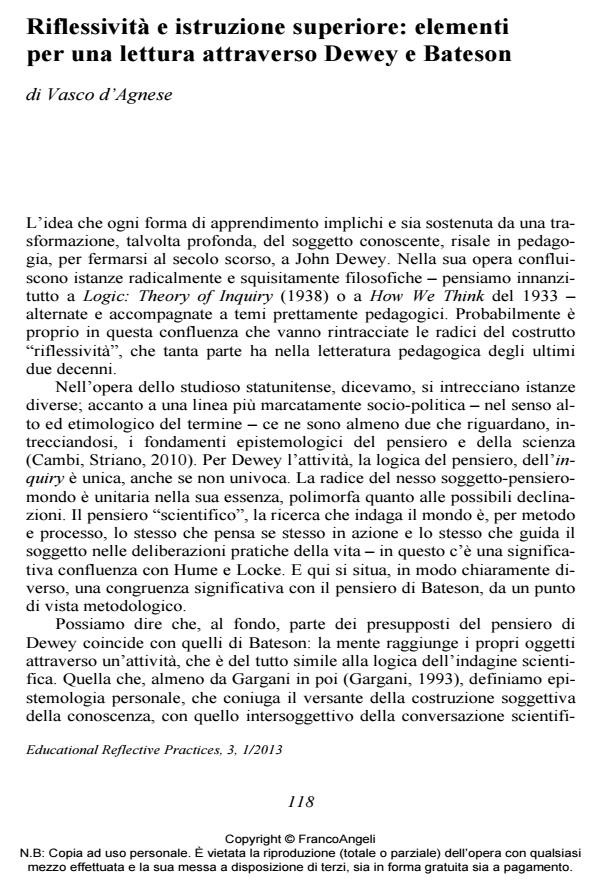Riflessività e istruzione superiore: elementi per una lettura attraverso Dewey e Bateson
Journal title EDUCATIONAL REFLECTIVE PRACTICES
Author/s Vasco D'Agnese
Publishing Year 2013 Issue 2013/1
Language English Pages 16 P. 118-133 File size 184 KB
DOI 10.3280/ERP2013-001009
DOI is like a bar code for intellectual property: to have more infomation
click here
Below, you can see the article first page
If you want to buy this article in PDF format, you can do it, following the instructions to buy download credits

FrancoAngeli is member of Publishers International Linking Association, Inc (PILA), a not-for-profit association which run the CrossRef service enabling links to and from online scholarly content.
This article explores the relationship between critical reflection on the knowledge in Dewey’s and Bateson’s view and the third level of education. Both the authors, in fact, devote much attention to the conditions of knowledge as the foundation of educational process. The intention is to show that the reflective practice is an habit of mind which must accompany each form of educational process as a primary educational and research strategy, both in theoretical research and in its practical applications
Vasco D'Agnese, Riflessività e istruzione superiore: elementi per una lettura attraverso Dewey e Bateson in "EDUCATIONAL REFLECTIVE PRACTICES" 1/2013, pp 118-133, DOI: 10.3280/ERP2013-001009